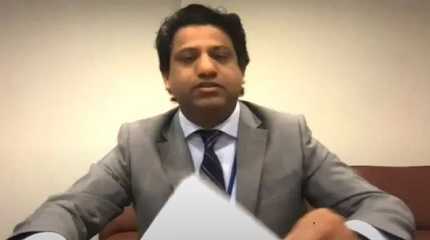
UNITED NATIONS, Oct 08(APP): Pakistan has called on the United Nations to invest “more time and energy” to address situations where people are still forcibly denied the right to self-determination, as in Jammu and Kashmir and Palestine, saying the world body’s decisions must be consistently implemented.
Speaking in the General Assembly’s legal committee, Ambassador Aamir Khan, deputy permanent representative of Pakistan to the UN, said that the right to self-determination is a fundamental pillar of the world order, pointing out that several General Assembly and Security Council resolutions have declared that attempts to unilaterally change the status of occupied territories whose people have yet to exercise that right are void.
“While most dependent or occupied peoples have been able to exercise their right to self-determination peacefully, there are some who have been denied this right and have been obliged to struggle for it,” the Pakistani envoy said in a debate on the ‘rule of law at the national and international levels.’
“This is the situation in occupied Jammu and Kashmir and Palestine,” Ambassador Amir Khan told delegates.
“There will be no peace in the Middle East or South Asia until the Palestinian people and the people of Jammu & Kashmir are enabled to exercise their right to self-determination.”
“The United Nations, particularly the Security Council, must invest more time and energy to secure the implementation of its own resolutions,” the Pakistani envoy said, adding that laws become discredited unless they are consistently applied.
“Today,” he added, “the system of international law and world order, created under the umbrella of the UN Charter, is in danger of collapse due to lack of consistent implementation and enforcement.”
Ambassador Aamir Khan also called on all nations who affirm the importance of the rule of law at the national level to respect the same beyond their borders. “A uniform and consistent approach to uphold the rule of law would significantly contribute to improving equitable socio-economic development and a just international system.”




